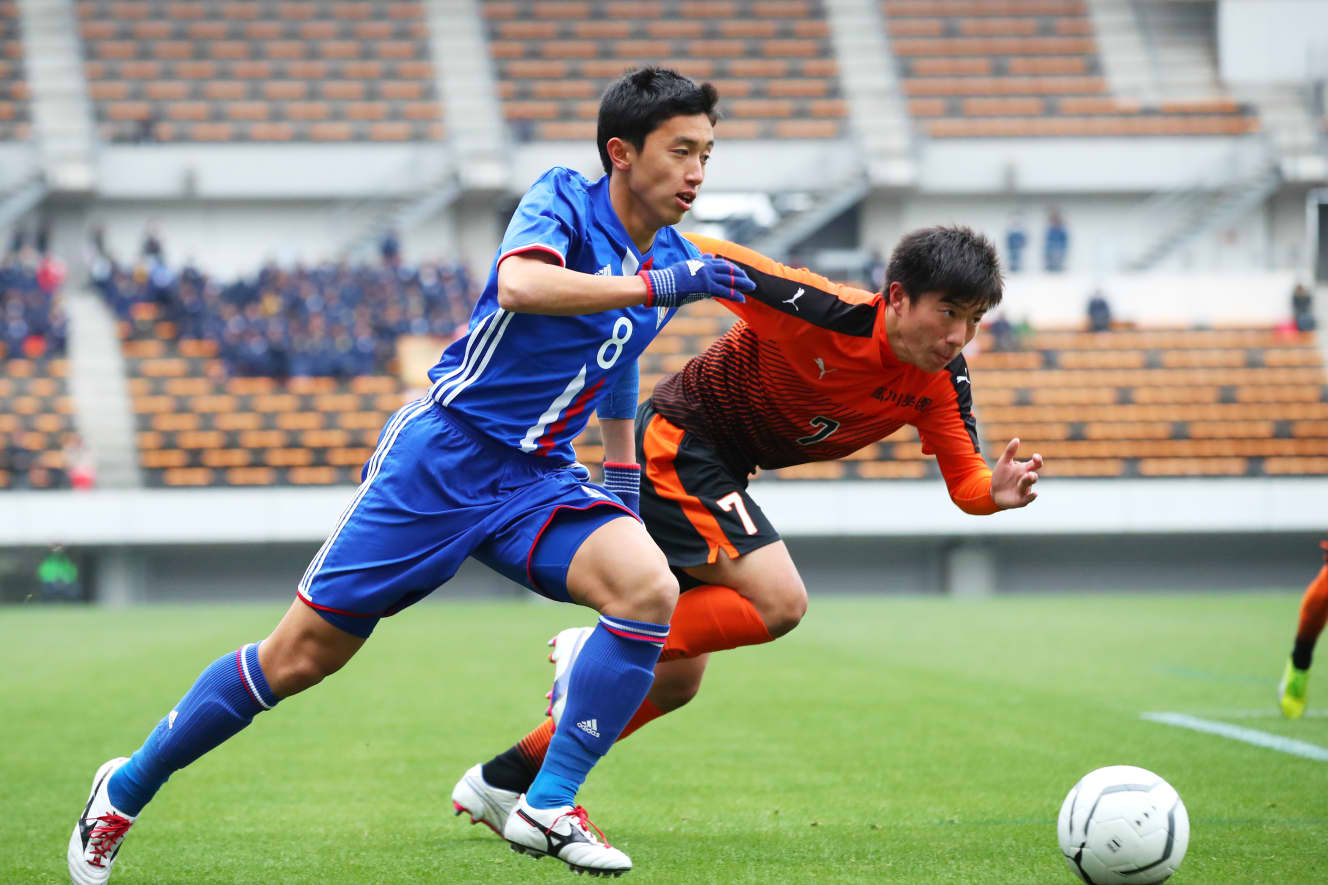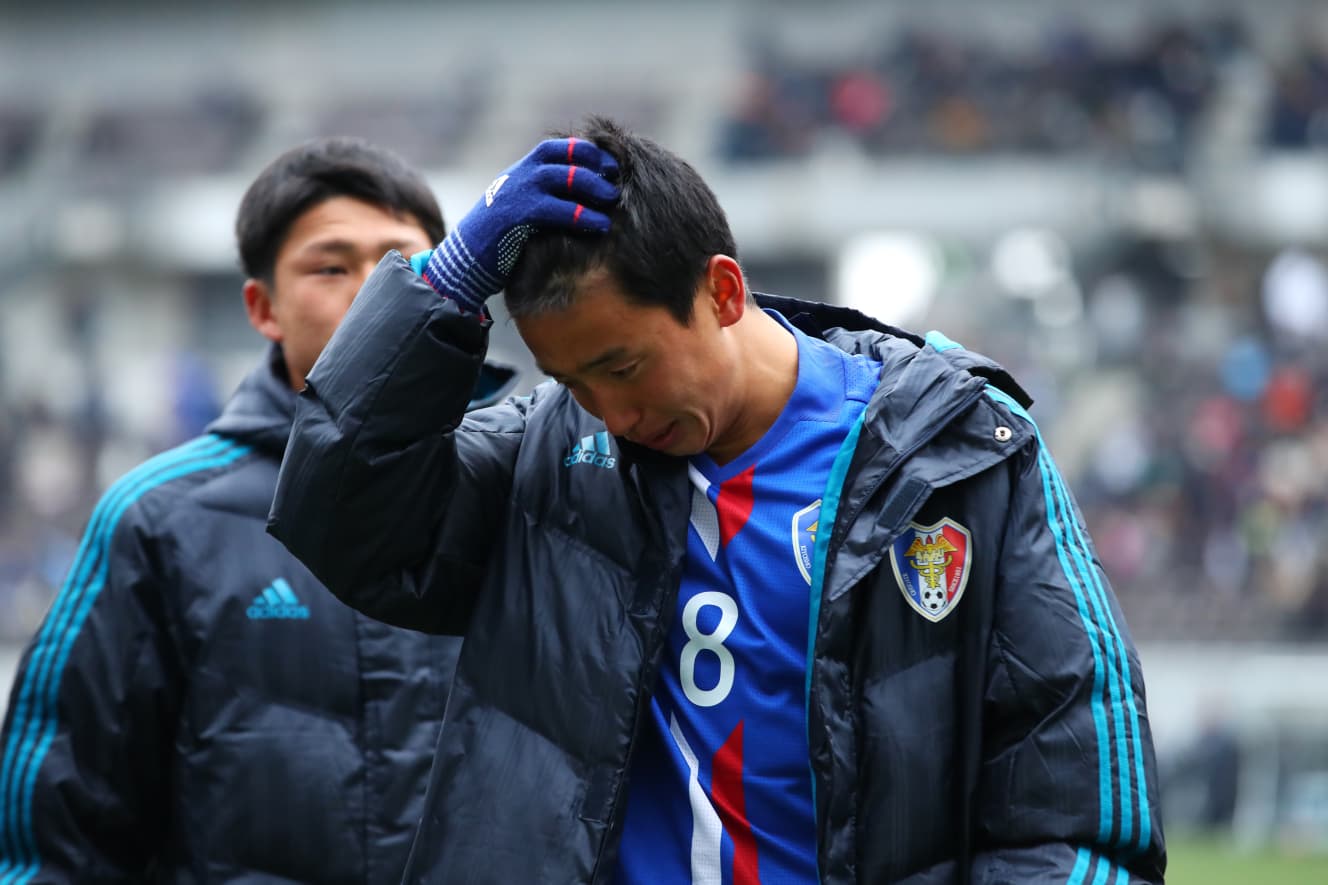Former player who gave up J-League career due to heart disease finds “new purpose in life

Professional soccer player. It is the dream of many children who aspire to play soccer. It is also a dream that many of them have experienced setbacks in their lives. But what if the reason for this is illness? They may have to start by accepting the reality of the situation.
Only 300 people in Japan suffer from an intractable disease
Kaito Shirai. He graduated from Juntendo University this spring and joined “Maenomery,” a company that mainly provides job placement support for athletic students. In his senior year, he scored goals against FC Tokyo and Zaspaksatu Gunma in the Emperor’s Cup. He was a name that every soccer fan had heard of at least once, and he was even being courted by the pros.
It was in his third year of junior high school that Mr. Shirai realized that he might not make it as a professional. He had admitted to himself in elementary school that he had been born with a chronic illness, but when he was unofficially promoted from Shimizu S-Pulse’s junior youth team to the youth team, a medical checkup revealed that he was caught by the regulations of the Japan Football Association.
The problem was Epstein’s disease. Epstein’s disease is a congenital heart disease caused by an underdeveloped valve between the right atrium and right ventricle, which leads to regurgitation. According to the Intractable Disease Information Center’s website, there are approximately 300 patients with the disease throughout Japan.
At the time, he was by no means optimistic, but he was able to quickly switch his mind to continuing to play soccer in high school, saying, “It wasn’t as if it was over because I couldn’t make it to the youth team; on the contrary, I had a yearning to play high school soccer, and if I could play high school soccer,” he said.
However, this illness would affect Mr. Shirai’s dreams until the very end.
At Shimizu Sakuragaoka High School, the successor to the prestigious Shimizu Commercial High School, he started playing in official games in his first year, and in his senior year he played with the traditional number 8 on his back. His style of play has led many to compare him with former Japanese national team midfielder Toshiya Fujita, who is also an alumnus of the school.
In his third year of high school, he was captain of the team and won the MVP award in the Shizuoka Prefecture qualifying round of the high school championships. He led the team to its first appearance in the national high school championship since the school name was changed. In this tournament, he was unable to play as well as he would have liked due to a dislocation of his left elbow sustained just before the game, and he also suffered the humiliation of losing the first game due to failure in the penalty shootout, but the tears he shed after the game added drama to his performance.
After entering Juntendo University, a strong university in the Kanto region, he continued to play in games as a freshman in a group that included prominent players such as Shintaro Nako (now at Kashima) and Reo Hatate (now at Celtic). In the Denso Cup Challenge, held just before he entered his final year of high school, he played a major role as a member of the Kanto Selected Team A. He made a good impression on the scouts who gathered there. He made a good impression on the scouts who gathered there, and was steadily climbing the ladder to becoming a professional soccer player.
It was during this period that he was given a heartbreaking notice.
The doctor who treated me at Jundai was the kind of person who accompanies the national soccer team on tours,” he said. So I asked him around the end of February to have my heart information examined by the soccer association. I received the results around the end of March. I was told once again that I could not play soccer in the JFL or higher because of medical regulations.
Even after receiving a diagnosis in his third year of junior high school that his soccer career would be affected, he never missed his annual checkups. Would it be cured by surgery? More than once, he asked the doctor if he could be cured by surgery. But the answer was always that there was no cure, and in fact, it was risky. I also remember that I was told that surgery would eventually become necessary regardless of whether or not I had the condition.
I had a vague sense of it, but when I was told the truth in my fourth year of college, I was extremely depressed. I couldn’t concentrate on anything during afternoon practice, which lasted about three days, and I couldn’t have a personal life without people telling me what to do.
The fact that he had never shown any subjective symptoms made it even more difficult to understand.


According to Mr. Shirai, whether or not he can continue to play soccer depends on the country. If he had gone to a country with relatively lax regulations, such as Southeast Asia, he might have been able to continue playing soccer, but it was too late after something had happened. I consulted with various people, among them Tsuyoshi Oiwa, coach of the Japanese national team at the Paris Olympics, Yoshikatsu Kawaguchi, goalkeeping coach of the Japanese U-19 team, and Masayoshi Otaki, who trained many Kiyosho alumni, including Shinji Ono, a former Japanese national team midfielder still active with Sapporo.
The famous general persuaded him to continue playing soccer, even naming specific teams, but he did not waver in his decision. In fact, the fact that he was confronted with reality at such an early stage gradually helped him to calm down.
There were inquiries from several J clubs.
One month after the announcement, he began job hunting, and by mid-May he had received a job offer.
I’m going to work hard at soccer,” he said. He showed his presence by scoring goals in consecutive games against FC Tokyo and S-Paxatu Gunma in the Emperor’s Cup, and several J-clubs contacted him.
Before the season started, I decided that I wanted to get results in my senior year so that eventually people would say, “Why didn’t Kaito Shirai go to the pros? I was very satisfied with the season as it turned out. As a result, it may not have been a very satisfying season, but I personally felt a sense of accomplishment that I was able to contribute the most in my four years.
Another turning point came in October. Through an acquaintance, he was approached by Mine Komiya (Shizuoka Gakuen High School → Takushoku University), who worked for Maenomery Inc. and had experience playing soccer through college. The company provides job placement support for athletic students, and Ms. Shirai herself had been a part of the company’s job search. Although he had no lingering attachment to soccer, the company to which he had received a job offer had nothing to do with soccer. I wondered if I could continue like this. He felt that his worries were suddenly lifted when he talked with Mr. Komiya.
He said, “That’s when he told me about the purpose and the means. Becoming a professional soccer player and earning money is one means, and working in the business world is another. There were many people who had experience playing soccer at university, and although they could not become professional soccer players, they were working with professionalism as members of society, which I thought was cool and wanted to be like them.
Happiness of being involved in soccer
His life has changed drastically from the days when he spent most of his time practicing soccer intensively. Now, “I just kick a ball around the office. He has participated in futsal tournaments with company members, but “I get tired easily because the team has a lot of experience. It’s tough when you don’t have alternates,” he laughs.
However, he feels happiest “being able to be involved in soccer. Maenomelli also provides job placement support for former soccer players who have retired from the J-League, as well as for students in the athletic department. He believes that this job will allow him to “give back to soccer,” which is what Mr. Shirai hopes to do.
I had trouble finding a job myself,” he says. Now I want to help people who were in the same position as me and give them satisfaction. There are many people I have fought with who have gone on to play professionally, but the life span of a player is not long.
In my case, I could not continue playing soccer due to illness, but I do not consider it a negative in the first place. I don’t think it is anything negative in life, and in fact, it is not something that many people get to experience. I hope to use it as an advantage, and since everyone has to make a decision about their second career at some point, I hope my experience will be of help.
It has been two months since he started his new life as a working adult. Has he found his dream?
To be honest, my dream for the future has been to become a professional soccer player, so I haven’t found my current dream. If I had to venture a guess, I would say I want to become a cool adult. At my current workplace, both male and female staff members are sparkling. They do things for others, and that is really cool. I want to be a cool member of society, too.
Interview, text, and photos: Yukihiro Kodama
Born in 1983. Born in Shima City, Mie Prefecture. After working for a sports newspaper, became an editor of Kodansha's soccer website "Gekisaka" in 2011.
